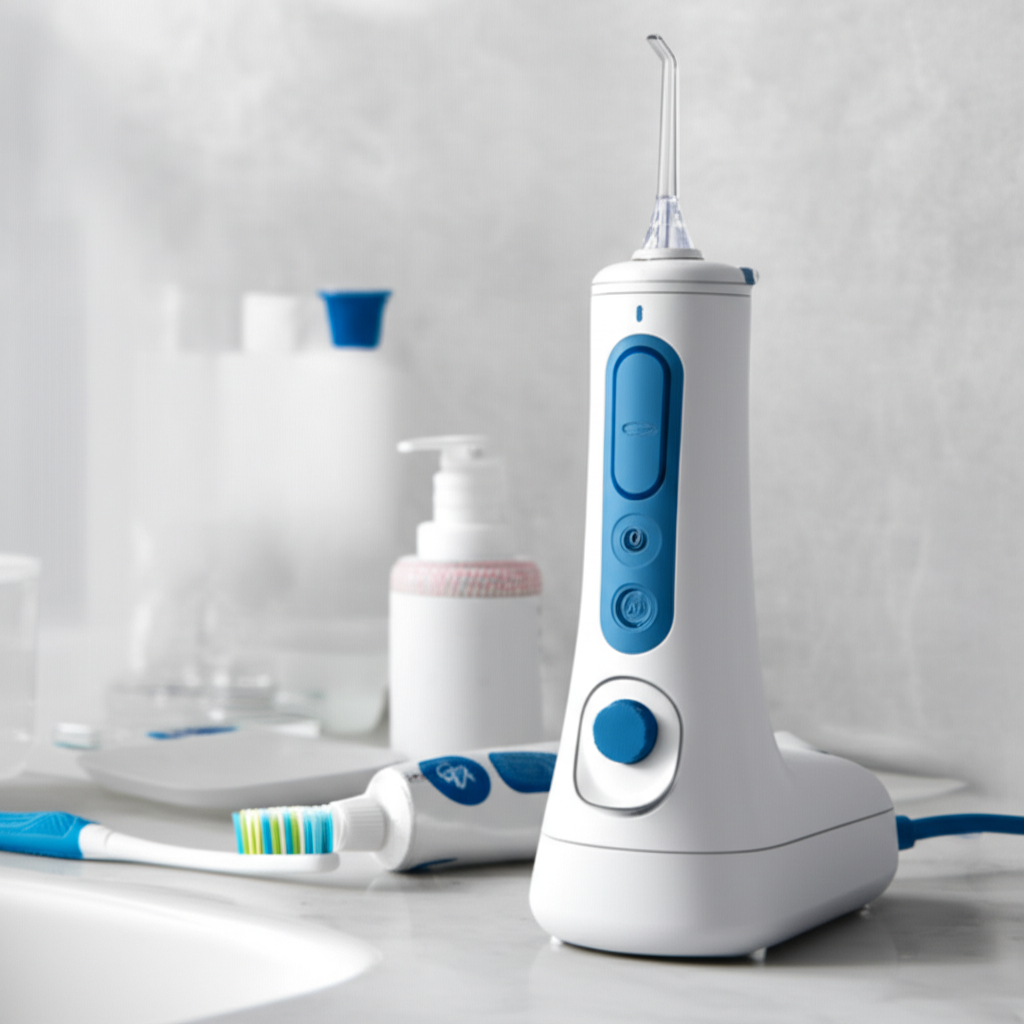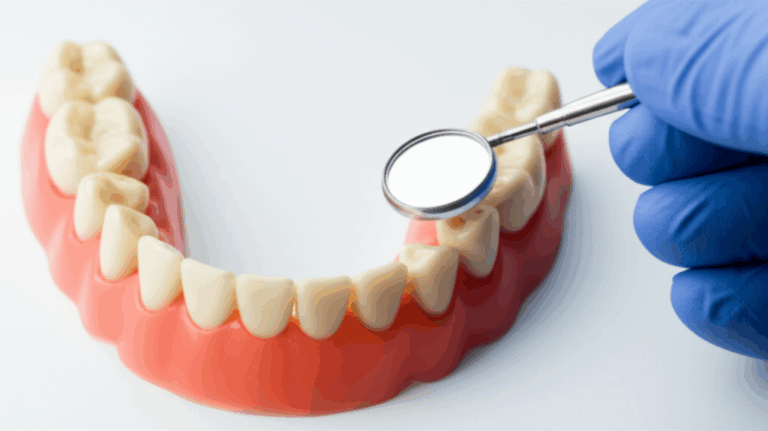
Are Water Flossers Recommended by Dentists? The Definitive Guide to Professional Perspectives
Water flossers, also called oral irrigators, are quickly becoming a big thing in dental care. But are they just a passing thing, or are they really as good as people say? Dentists are important for keeping our teeth and gums in great shape, so it makes sense to ask what they really think about water flossers. This article dives in and answers the main questions, based on science and what dental experts say.
Why read this article?
If you’re trying to make your smile brighter and your gums healthier, you shouldn’t miss this. We’ll talk about what water flossers are, why dentists often say they’re good, and who can get the most help from using them. You’ll also learn if water flossers can really take the place of regular string floss, how to use them the right way, and how to pick the best one for you. Most importantly, you’ll see how water flossers fit into a simple tooth care routine—with tips easy enough for a 5th grader.
Table of Contents
1. Introduction: What Do Dentists Say About Water Flossers?
Have you ever had your dentist or dental hygienist tell you to floss more? If you’re like me, you probably nodded but felt kind of annoyed. Regular floss can be hard to use. Sometimes it hurts, sometimes it makes your gums bleed, and sometimes you just can’t do it right. Now, think about the water flosser. If you’ve seen commercials for things like Waterpik or heard about “dental water jets,” you might wonder: Do dentists really like these?
The answer is yes—dentists do say water flossers are good. They’re not a magic trick, and they’re not meant to replace brushing and flossing for everyone. But, these tools are very helpful as part of your tooth care habits. For a lot of people, especially those with braces, implants, or gum problems, water flossers can really help.
2. What Is a Water Flosser and How Does It Work?
A water flosser is a gadget that shoots a small, strong stream of water between your teeth and near your gums. This “oral irrigator” uses water to wash away bits of food, sticky stuff (plaque), and germs. Think of it as a mini shower for your mouth.
How it works:
- You fill it up with water (sometimes you can add a little mouthwash for a fresh taste).
- The machine pushes the water through a small tip.
- As you move the tip along your gum line and between your teeth, the water knocks away things stuck there.
- The water can get to hard spots where floss and a toothbrush may miss, like around braces, crowns, or implants.
Water flossers are soft but work well. They can make flossing faster, hurt less, and be less messy than using string.
3. Why Do Dentists Recommend Water Flossers?
Here’s the problem: Not everyone can use string floss. Sometimes fingers are too big, hands hurt because of things like arthritis, or you’re just too tired at night. Even if you do floss, you might not get all the food out. Food that stays can cause plaque, bad breath, and even gum disease.
Dentists see this problem a lot. They know if you don’t floss, you get more plaque, sore gums, and could lose teeth.
This is how water flossers help. According to Dr. Joe Dental, who’s been a dentist for over 20 years, “Water flossers really help my patients who can’t use regular floss. It makes cleaning easier, faster, and even fun.”
Dentists like water flossers because:
- They remove more plaque: Some studies show water flossers can get rid of up to 99.9% of plaque in the places they clean.
- Better gum health: Research shows water flossers reduce bleeding and signs of sore gums better than string floss by itself.
- Super for tricky dental work: Got braces or implants? Water flossers clean around wires, brackets, and other dental stuff where string floss can’t always go.
The answer: Dentists say water flossers are great for people who need extra help with cleaning, or want a more comfy, better clean.
4. Who Should Use a Water Flosser?
Water flossers can help almost everyone—but some folks really get the most out of them. Are you one of them? Here’s a quick list:
Best For:
- People with braces (kids, teens, or adults): Braces have lots of spots where food gets stuck.
- Anyone with implants, bridges, or crowns: These need gentle, really good cleaning.
- People with gum problems: Washing out pockets in your gums can help with swelling.
- Those with arthritis or trouble using string floss: Easy handles and simple buttons make water flossers possible for people whose hands don’t work well.
- Non-flossers: If you just can’t stand using string floss, water flossing is probably better than not flossing.
If this is you, ask your dentist if a water flosser is a good idea.
5. Water Flosser vs. String Floss: Which Is Better?
People ask all the time: Can I stop using string floss if I get a water flosser?
The truth is, every mouth is different. Here’s what to know:
- String floss scrapes off the sticky plaque right from between your teeth, especially the tight spots where teeth touch. This scraping keeps away cavities between teeth.
- Water flossers use a pulsing water stream to blast out bits of food, germs, and film. They’re great for washing below the gum line and around things like braces.
Best way: Dentists usually say use both if you can. String floss for the really tight spots, and water floss for everything else—especially if you have braces, sore gums, or if regular floss is just too tricky.
Here’s a simple table to compare:
| Feature | String Floss | Water Flosser |
|---|---|---|
| Removes sticky plaque | Yes | Sometimes |
| Good for tight spaces | Yes | Not always |
| Cleans below gum line | No | Yes |
| Easy to use with braces | Hard | Easy |
| Good for sore gums | Sometimes hurts | Soft for most |
| Needs finger work | Yes | No |
6. How Do You Use a Water Flosser the Right Way?
If you want your water flosser to really shine, using it right is super important. Here’s how dentists and hygienists say you should do it:
How often?
Use your water flosser once a day, after brushing. With practice, it doesn’t take much longer than regular flossing.
7. What Should You Look For When Buying a Water Flosser?
Not all water flossers are the same. If you want a good clean, look for these things:
- ADA Seal: This means the flosser is safe and actually works.
- Pressure settings: You want to be able to go soft or strong, your choice.
- Different tips: Look for tips for braces, gums, and regular cleaning.
- Easy-to-fill tank: Bigger tanks mean fewer refills.
- Trusted brands: For example, Waterpik gets top marks from dentists often.
Dentists might also say look at professional labs that make dental stuff, like a dental ceramics lab if you have special dental needs.
8. Are There Any Downsides to Using Water Flossers?
Water flossers are safe for almost everyone. But there are a few things to watch out for:
- Gums might bleed at first: Just like with regular floss, sore gums might bleed a bit the first few times. This should stop after a week or so.
- Not always a total replacement for floss: Water sometimes can’t get the sticky stuff off between teeth, so for some people, string floss is still needed.
- Cost: Water flossers are more pricey than a little box of floss. But for lots of folks, the comfort and results are worth the cost.
- Needs power or batteries: Not as handy if you travel a lot.
If you have pain, bleeding that lasts, or gum problems, see your dentist right away. They’ll help you figure it out and let you know if a water flosser is right for you.
9. Water Flossers and Special Dental Needs
Let me tell you about my friend Jamie. He just got braces and was having a hard time cleaning them. Food would get stuck, string floss was tough, and his gums started to bleed.
When he got a water flosser, cleaning was much easier. It blasted away food from every bracket and wire. His gums stopped bleeding, and his next checkup was great.
If you have implants, bridges, crowns, or dentures, you know how tricky it is to get them clean. Water flossers help a lot.
- For people with dental work, a crown and bridge lab can make crowns that fit well, but you still have to keep them clean. Water flossers help you protect your teeth.
10. What Do Studies Say About Water Flossers?
You don’t just have to believe me. Here’s what science says. Dental experts and groups like the American Dental Association (ADA) have looked at water flossers.
- Water flossers can take away up to 99.9% of plaque where they clean, sometimes in just 3 seconds.
- They lower bleeding and swelling from gum disease better than string floss in some cases.
- People with braces see even more help: water flossers clean up to three times more plaque than regular floss around braces.
- Water flossers with special tips can even make gum pockets smaller for people with gum disease.
- The ADA has put its Seal on some models, including Waterpik.
Dentists have checked and back up that water flossers really work. They say water flossers are not a trick and are supported by a lot of studies (Waterpik.com, Journal of Periodontology, ADA.org).
11. Frequently Asked Questions
Q: Can I use a water flosser instead of string floss?
A: It’s best to use both if you can. String floss scrapes off sticky stuff in tight places, while water flossers clean out loose food and germs.
Q: Are water flossers safe for kids?
A: Yes, if they’re old enough to use it and have an adult help. Check with your dentist if you’re not sure.
Q: What if my gums bleed when I use it?
A: A little bleeding is okay at first and should stop after a week or so. If it keeps going, see your dentist.
Q: Which brand should I buy?
A: Good brands like Waterpik, Philips Sonicare, and Oral-B are liked by dentists. Pick one that has the ADA Seal.
Q: Can I add mouthwash to the water?
A: Maybe, but not every device lets you. Check your flosser’s book or ask your dentist.
12. Key Points to Remember
- Dentists say water flossers are a good extra for your daily brushing and flossing, especially for people with braces, implants, or gum problems.
- Water flossers work by shooting out plaque and bits of food with a strong water stream, getting to places even a toothbrush or floss might miss.
- They’re simple to use, gentle on your gums, and perfect for anyone who can’t use regular floss easily.
- Studies back them up: Water flossers can remove more plaque and help gum health better than string floss in lots of cases.
- Not all water flossers are built the same. Look for helpful features and good brands that have the ADA Seal.
- Water flossers aren’t a total replacement for string floss for everyone. Use both if you can, and always brush too.
- Got crowns, bridges, or implants? Keep them clean with a water flosser and ask your dentist if you have questions.
- For all your dental help and cleaning products, check out a china dental lab or a special removable denture lab.
- Most important? Ask your dentist for tips that fit you best. Every mouth is different and needs its own care.
Smile with confidence—keep your gums healthy and your teeth clean, and let your dentist know you’re using the best tools for the job!








